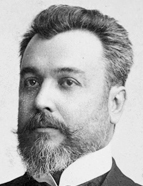

However, it was in his fully "regional" work—the various formulations within the scope of the Geography of Portugal, his participation in the Guia de Portugal [Guide to Portugal] of the National Library, and the regional monographs, e.g. Ribatejo (important geographical contributions to the crucial theme of "national autonomy" that was meanwhile being developed in the context of Portuguese History)—that a conception close to "long time", deep, rich—and " historical —became dominant. It is the "time of the landscape," marked by the centuries-old interplay between "land and people", where each region reflects a unique synthesis of environmental role and the symbols of civilisation. Without naming the authors who led this "paradigmatic" shift in international geography, one can discern the influence of the French school of geography. Inspired by figures such as Vidal de La Blache and his Principes de Géographie Humaine [Principles of Human Geography], this school found a prominent advocate in the historian Lucien Febvre, who applied its principles within the realm of history.
Silva Teles' legacy, in the institutional, professional, and even personal spheres, is varied and far-reaching. As head of the Geography department at the Higher Course and, after the Republic, at the Lisbon Faculty of Arts and Humanities, Silva Teles trained the first generation of teachers qualified to teach Geography in secondary schools and even published Elementos de Corografia Portuguesa [Elements of Portuguese Chorography] for elementary education, a book that was developed and updated but which, oddly, the authorities did not approve. Portuguese geography owes its university institutionalisation to Silva Teles, along with the clear definition of its object of study (Orlando Ribeiro, his student and successor at the University of Lisbon, did not hesitate to rank him alongside Bernardino de Barros Gomes and Amorim Girão as one of the "founders" of geographical science in Portugal), within a naturalist concept of German influence and US ramifications—freeing it from the non-scientific ballast with which the encyclopaedic, recreational, or exploratory tradition of previous centuries had dulled it.
This work is financed by national funds through FCT - Foundation for Science and Technology, I.P, in the scope of the projects UIDB/04311/2020 and UIDP/04311/2020.
